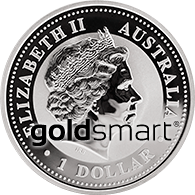 Silver prices have been doing extremely well lately and outpacing gold in terms of it’s rise. This is making it an excellent time to sell silver in New Zealand with spot silver hitting a new 31-year peak! How long will this rally continue is anyone’s guess with many commentators saying that “silver is overbought” and due for a correction.
Silver prices have been doing extremely well lately and outpacing gold in terms of it’s rise. This is making it an excellent time to sell silver in New Zealand with spot silver hitting a new 31-year peak! How long will this rally continue is anyone’s guess with many commentators saying that “silver is overbought” and due for a correction.
Gold Smart will purchase any silver bullion, silver coins, silverware (sterling) and silver jewellery that you want to sell. Examples of silver to sell include 1oz Silver Bullion (including silver Kiwi Ferns, Silver Kookaburras, Australian Silver Koalas, Canadian Silver Maples, Mexican Silver Libertad, Chinese Silver Panda, American Silver Eagles, Austrian Silver Philharmonics), 99.99% 1kg Silver Bars (PAMP Suisse, J&M, AGR, NZ Pure Silver, ABC, Perth Mint Silver), old silver coins that have no numismatic or collectors value (including Morgan Dollars, Liberty Head “Barber” half-dollars, some quarters, dimes and nickels, Crowns, Half Crowns, Florins, Shillings, Six Pences, Three Pences).
Silver prices have reached record-levels making now a great time to sell silver for cash to Gold Smart in New Zealand.
We are Gold AND Silver buyers!
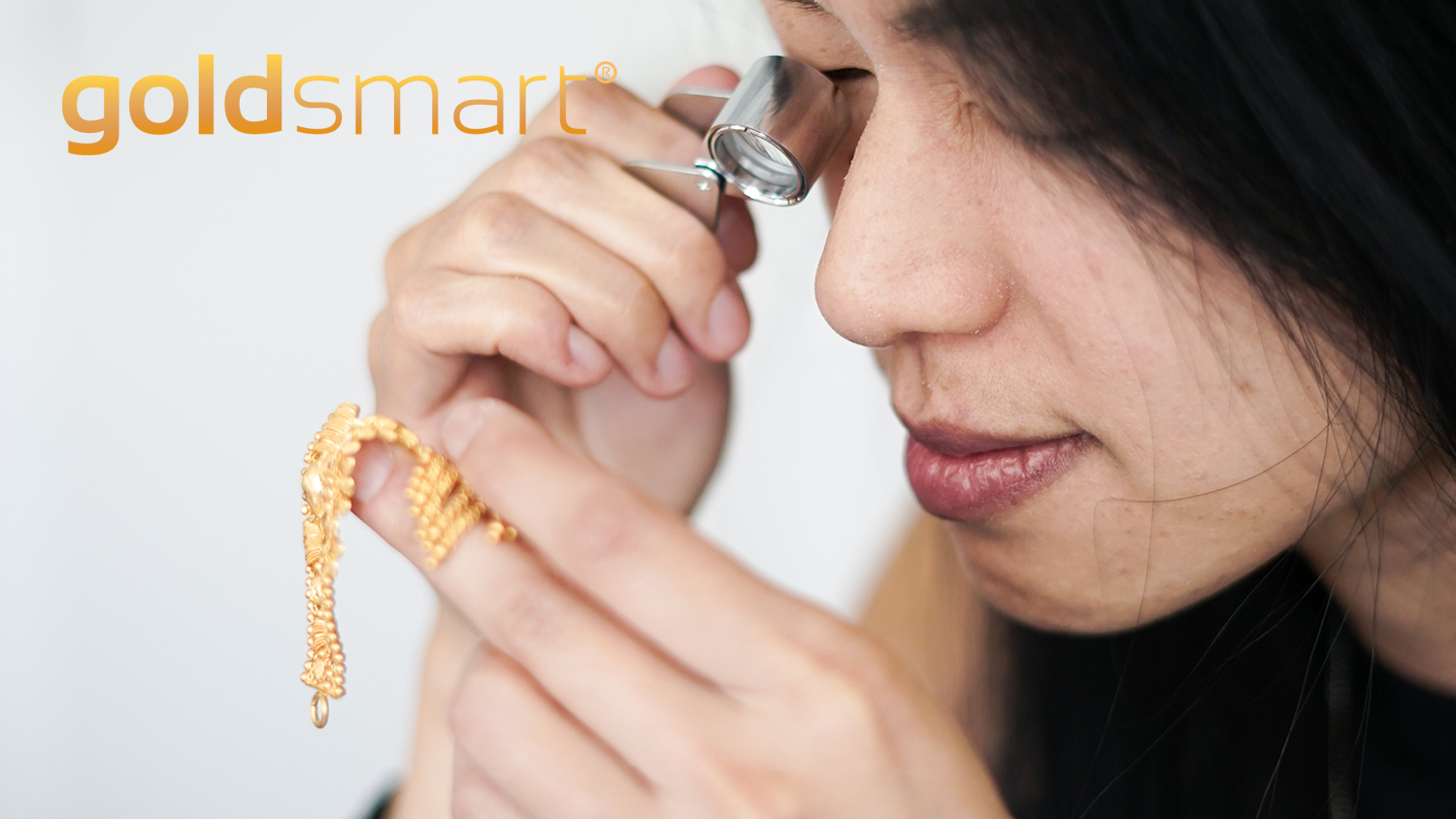
The beauty of having a financial windfall like found money in your pants pocket, a lottery win, a gift for your birthday, or similar is that there are literally no obligations on it. With your paycheck, you already have bills due by the time you’re paid, you have to pay rent or a mortgage, food, and groceries need to be bought, utility bills are pending, and similar. The money is committed and gone before it has a chance to warm up in your bank account. However, with a windfall, the money is all yours, free and clear.
When you sell unwanted gold and similar precious metal items, the financial leap forward that comes with selling that second-hand jewellery or gold coins or similar works just like a windfall. You literally make old gold and precious metal items sitting around at home unwanted become useful and valuable again in your life. This is why gold has been handed down for centuries in different cultures; it provides a personal safety net. And given where the market is in the last year or so, the timing couldn’t be better. While petrol prices at the pump may be going through the floor, gold prices continue to move in the opposite direction, climbing higher each month. Some of this behaviour has been due to recent instability in markets and fear of economic recession in different countries. However, another big influence continues to be the understanding that gold remains a solid hedge when government currencies start to show weakness as well. And it is important to note that these go in spurts with fallbacks to solidify a level as some people take profits in speculation, and then they climb again.
What does the above mean for consumers? Specifically, if folks have broken or unwanted jewellery and gold items sitting around at home unused, now may very well be a good time to convert those items into usable, functional cash for your household.
It’s Easy to Get Burned Selling Blindly
The above said, there are lots of pitfalls in selling personal gold. With fraud rampant online through auction sites as well as in-person selling, there continue to be stories after stories of well-meaning folks finding themselves in the wrong place at the wrong time trying to sell personal gold and being scammed or worse. Online auction selling, for example, has had some of the worst cases, with folks selling their gold and putting it in the mail only to find themselves robbed of both the jewellery and the money they thought they were paid electronically. One of the most rampant forms of this problem is the chargeback scam where a buyer pays by credit card and, once the personal seller has sent the gold, the buyer reverses the credit card payment electronically telling their payment processor the transaction was not theirs. This is bad enough when it happens between domestic parties, but across international lines, it is almost impossible for a victim to get their money or gold back once it has been sent in the post. And a number of in-person gold buying options aren’t the safest options either.
Given all the challenges, many will find themselves challenged in finding a reputable and safe gold-selling option in New Zealand without some serious research. On the other hand, there is a viable alternative.
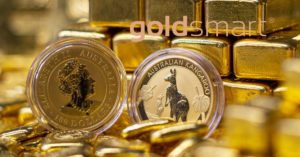
Where to Sell? Easy, Gold Smart is a Perfect Choice
Gold Smart can help you reach financial goals, whether online or in-person at our venue address right in the heart of the Auckland financial district. Our professional gold buyers and teams operate without issue, provide fair and accurate prices for consumers, and stay up to date with gold markets daily. All of that means a seamless, smooth sales process for consumers.
One of the biggest issues people have with considering selling personal gold is knowing where to do so safely. That includes both immediate security as well as avoiding the risk of being scammed or misled by a fast-talking culprit. No surprise, these two issues have prevented many from realizing the benefit of recycling and selling unwanted gold again and again. We solve the double problem by providing a safe, seamless resource for selling personal gold without issues or concerns. Here’s how:
- Competitive Pricing – Because our buying teams work daily with the gold and silver market, we price items based on their most current value. That gives consumer gold sellers the best return on their items in terms of pricing versus other venues and buyers that might be delayed by more than a week or who use other methods for pricing evaluation not directly tied to the gold or silver market.
- Confidentiality – We keep each and every transaction secure, private, and confidential. There is never a risk of anyone aside from whom you let know have any idea or awareness about what you sold, for how much or when. Your gold is your property and your business to manage. We keep it that way. Our records only pertain to verifying your identity and the transaction itself as part of our own licensing requirements under government regulation. And we will never include any of our customers or their account information in any of our marketing unless you give us express permission to do so.
- Efficient Response – Gold Smart also puts a premium on customer time. We push for a fast turnaround and don’t allow for needless delays. You get an answer and pricing fast, every time, every transaction.
- Expertly Trained – Our Gold Smart teams and professional gold buyers are trained and retrained regularly. That provides a level of professionalism usually not found in other venues. In fact, probably over half of the other gold buyers and their staff have no formal training whatsoever in the gold market, professional appraisal, and gold buying.
- You Make the Decisions – We don’t pressure customers to sell their gold, ever. Your gold-selling choices are yours alone. We fully understand some folks may change their minds at the last minute because many times items have emotional ties to them. We won’t pressure you in any situation, no matter how much gold is involved.
- No Traps or Fees – Nothing sours a financial transaction than a hidden fee brought out at the last second. We don’t play games with our customers or hide the ball. You know upfront what our service costs every time, all the time.
At Gold Smart, we regularly buy gold and silver in New Zealand for refining and recycling. Because our service has been established for years and held in the highest respect in the country’s gold recycling industry, we are easily able to help you exchange your unwanted, damaged or outdated gold jewellery for cash as gold prices continue to rise. We started Gold Smart because we recognized the need to provide regular customers like you a fair and transparent process for selling your unwanted gold jewellery versus what people had to deal with otherwise. As a result and over the past decade, thousands of customers throughout New Zealand have placed their trust and confidence in Gold Smart.
Gold Smart has always been a standing New Zealand source for consumers and individuals to liquidate unwanted gold, silver, and similar precious metals. Instead of having items collecting dust in drawers and doing nothing for years, folks can turn those personal assets into a useful and functional form of cash. Maybe you want to take a vacation, get some dental work done, pay for some classes and training you always wanted, or get a new TV entertainment system for the home. All of these things can be possible with freed up cash from selling personal gold, especially now as gold prices remain high.
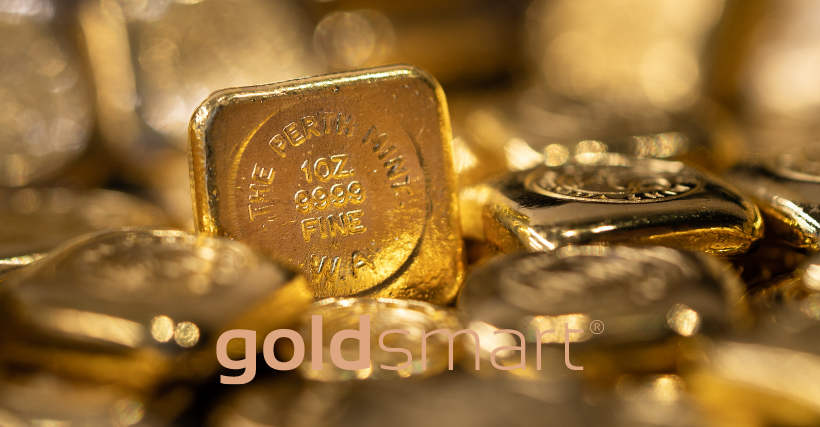
We Provide Gold Education As Well
Not sure how gold recycling even works? That’s okay. Gold Smart also provides an extensive library of information and material on our website designed specifically to educate personal sellers on the different aspects of gold, from bullion coins to jewellery to gold bars to the gold market behavior and more. We even cover the history and details behind gold watches like Rolex timepieces. The best part of this resources is that it is entirely free. All you have to do is simply turn on a computer, connect it to the Internet and go to our website. At the destination you will find article after article on gold buying and selling education, as well as articles specific to you as a gold seller. We cover all aspects of the process, from how gold pieces are evaluated to what to watch out for if you decide to use other channels for selling personal gold.
Given all the above, when people actually work with Gold Smart for the first time, then end up so surprised at how smooth everything went, they often wonder why they didn’t think of using Gold Smart sooner. This regularly turns first-time customers into regular and repeat clients for us at Gold Smart, and it reinforces all the work we do to help protect customers and make gold-selling easy, practical, and profitable. Try it yourself with our buyers and you’ll see personally what the Gold Smart difference really means.
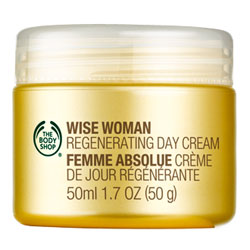 With gold prices hitting record-highs it seems there are people encouraging the public to spend money on jewellery valuations. Having up-to-date records of all your gold and silver jewellery items is very important and understanding how insurance companies work will save you headaches and trouble if the unthinkable happens – your jewellery goes missing!
With gold prices hitting record-highs it seems there are people encouraging the public to spend money on jewellery valuations. Having up-to-date records of all your gold and silver jewellery items is very important and understanding how insurance companies work will save you headaches and trouble if the unthinkable happens – your jewellery goes missing!
What’s the value of my Jewellery
First let’s look at the difference between ‘retail value’ and and what we call ‘real value’. As consumers we know (or should be aware) that purchasing any item new from a jewellery shop will contain a large ‘retail’ premium. This is true across almost any item you look at from large screen plasma TVs, new cars, clothes, computers, cellphones and so on. Commonly this is what’s called depreciation – basically the decline in value of ‘assets’. From an economic point of view when we enter into a contract of sale we are effectively accepting that the item will depreciate from the moment payment is made. The amount of loss in value depends on the item and how much over it’s ‘true value’ you bought it for.
What’s depreciation and does it relate to jewellery
Depreciation can also be caused by factors such as wear and tear, outdated technology and consumer demand however for the sake of this article let’s put that aside for the moment and focus on how this relates to buying and selling gold jewellery. There’s various definitions of what can be classed as an asset and the view we subscribe to is that it’s something that puts money INTO your pocket and improves your financial balance sheet. Such as stocks yielding interest payments, real estate that’s generating positive cash flow, long term investments, etc.
What’s an Asset
Assets are tangible or intangible items that produce value and have positive economic value. Paying “retail” for something is never a smart idea and yet we are often driven by emotion and desire (which can have a negative effect on our personal wealth and well being).
Retail Premiums on Gold Jewellery
Let’s now look at the various price components that make up the cost of new jewellery to help understand where this difference arises from… imagine the effort required to mine only 1 troy ounce of fine gold – it can take over 1 ton in rock to yield this much gold, that’s a ratio of 1:32,150! Not particularly efficient or environmentally-friendly.
Now imagine that unrefined gold doré bullion has to travel some distance perhaps overseas like the Martha Minein New Zealand to the Perth Mint in Australia. That product must be processed and refined taking out all the impurities and separating the gold, silver and precious metals. This process has several steps and uses very toxic and strong chemicals to complete. Next the refined product needs to be turned into materials suitable for the jewellery manufacturing process – this could be in the form of alloy, gold/silver granules, fabricated metal products, castings, plate sheet, solder paste, wire and so on.
Manufacturing overheads
Next the jewellery manufacturing process will take place, which could be done in China, Thailand, Indonesia, or other countries where the human labour costs are low (or in Western nations where costs are higher). Depending on the item being made the finished product will have a variable amount of time required to finish the jewellery. Normally done in bulk, mass-produced runs to reduce the costs such as seasonal designs or product ranges used by high-street jewellers.
The jewellery would then be shipped to a warehouse for distribution to various retail locations across the country and the World. Next items are sent to individual stores for presentation and sale. Of course retail costs can be very high as can well-trained jewellery sales men and women including retail overheads, full time sales staff salaries, commissions and so on.
Gold Prices
If you think about gold prices as the raw-ingredients used in the supply and manufacturing of jewellery and the above mentioned steps as what’s considered “value-add” then it’s not hard to imagine how much above the “gold value” jewellery can be. It’s no uncommon for this to be in excess of 300% above the metal value. Yes, gold and silver could be considered an asset, however that’s given when you bought the gold it was at fair market valuation – i.e. very close to the actual gold spot price. If you’ve bought many years ago you may be lucky in that the gold price has moved up so much that you now have items worth more than you paid for them! This is not guaranteed however – best to make money when you purchase not hope for some potential increase in value.
Jewellery valuations
If you consider for a moment the recent world-wide property bubble that was built on high leverage, easy debt and speculation, then one must be open to considering that banks, promoters of real-estate investment and valuers were partly responsible. Remember the rating agencies that provided AAA+ ratings for all those toxic mortgage-backed-securities? The public believed rating agencies opinions and yet overlooked the shocking fact that rating agencies were paid by the very companies the products were created by – now that’s a serious conflict of interest.
Ethically and in most cases by law, valuers are required to remain objective and impartial providing a genuine service to customers. Yet we’ve heard that if you own real estate it’s quite possible to encourage the property valuers to provide either a higher or lower value depending on your intentions. Now imagine that the same valuer or Real Estate agent was the one looking to purchase your property… hardly objective is it?
The illusion of higher value
In our opinion we must look carefully at who benefits from not just selling jewellery but maintaining the belief that something has more value than it really does. Quite simply something is worth what another person will pay for it. If you have to insure an item to retail or replacement value who benefits? The company providing insurance (the higher the value the larger the premiums), the valuer that needs to provide a new report each year and of course the retail jewellery shop that provides you replacement jewellery at retail prices.
Yes, gold and silver is considered an asset that maintains it’s value (given normal market fluctuations). Jewellery however does not meet our definition of a true asset because of the high retail premiums you pay when purchasing from a shop (especially true when items are brand-new). Be very careful of companies that value jewellery and also purchase it!
For customers looking for a reputable jewellery valuation for insurance replacement purposes, we recommend Gemlab, as they are independent and impartial valuers. www.gemlab.co.nz
For fast cash for your unwanted gold and silver (and excellent rates), please talk with the friendly and professional team at Gold Smart today. goldsmart.co.nz